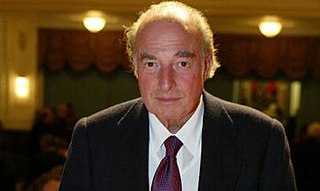A Quote by Carroll Quigley
This persistence as private firms continued because it ensured the maximum of anonymity and secrecy to persons of tremendous public power who dreaded public knowledge of their activities as an evil almost as great as inflation.
Related Quotes
Public virtue cannot exist in a nation without private, and public virtue is the only foundation of republics. There must be a positive passion for the public good, the public interest, honour, power and glory, established in the minds of the people, or there can be no republican government, nor any real liberty: and this public passion must be superiour to all private passions.
I always felt, and I still feel, that the media doesn't belong in a public official's private life. It's a very difficult balance, because if you are elected to public office, people have a right to know a great deal about you, and the press has an absolute obligation to report all of that. But the reality is that there are times in which the reporting is really happening for almost voyeuristic reasons, in the gossip columns. Maybe half of it is wrong, and half of it is correct, and a lot of it is exaggerated. You've just got to get used to that if you're in public life.




































